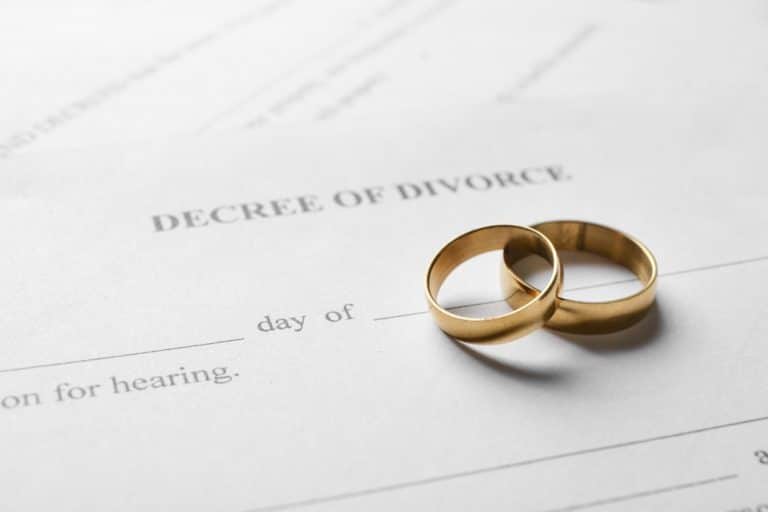
Article written by Rosemary Bocska
Canada is a country that is very proud to say that it is rich with immigrants. In fact, Canada has a well-deserved international reputation for being open-hearted in welcoming those from other countries.
If you are one of these newcomers, settling into Canada will involve adjustment and transition. You and your family members will be required to adhere to Canadian laws and social policies. You will also be encouraged to adopt some of the customs of this country as well.
Hopefully you will all go on to thrive in your adopted land. But the sad reality is that not all marriages survive the journey from one country to another.
If you and your spouse were married elsewhere, have immigrated to Canada, and are now looking to divorce, this article is for you. It touches upon some of the legal issues you should be aware of.

The Validity of Marriages Performed Outside Canada:
Before you can think about divorce, you should know there is an initial step. First, make sure your foreign marriage is legally valid and recognized in Canada.
Canada has specific legislation on what is considered a valid form of marriage. Some countries' and cultures' religious customs and marriages are intertwined with legal requirements, so determining whether your marriage meets the conditions imposed by Canadian Family Law can become complex. Suffice it to say, the legality of your marriage might be a preliminary issue before considering the divorce process.
Ontario Courts’ Jurisdiction to Grant a Divorce:
Assuming your foreign marriage is valid, now we can look at how you can get a divorce. The Ontario court can likely do the job for you. Under section 3(1) of the federal Divorce Act, a provincial court has jurisdiction to hear and determine a divorce proceeding “if either spouse has been ordinarily resident in the province for at least one year immediately preceding the commencement of the proceeding.” Note that only one of you must be ordinarily resident in Ontario – not necessarily both of you.
So as long as you meet that residency threshold, you can apply to the Ontario court. With that said, a divorce will not be granted to you automatically. As with any Canadian-born applicant, the Divorce Act requires that you show that there has been a “breakdown” of your marriage. This in itself has various tests to meet.
This process will likely be unfamiliar, so you should talk to an experienced Family lawyer to make the proper application, complete with supporting evidence.

When Does Canadian Law Recognize a Foreign Divorce?
On the flip-side, you may be wondering whether a divorce you obtained from your home country is recognized here in Canada.
Again, the governing law is the federal Divorce Act. It says that for the specific purposes of determining a person’s marital status in Canada, a divorce granted in another country will be recognized provided either of you or your former spouse was ordinarily resident in that other country for at least one full year before starting your divorce proceedings there. For these purposes, there are special rules around what constitutes “ordinarily resident”.
But be careful. If you have been granted a divorce from a foreign country but are living here, an Ontario court will not have authority to make divorce-related orders pertaining to spousal support. This is because a validly-granted foreign divorce order legally strips you both of the title of “spouse.” This change in status precludes a local Ontario court from granting “spouse”-related remedies under divorce-law.[1]
On the other hand, an Ontario court may still have jurisdiction under the provincial Family Law Act to hear and determine issues relating to the equalization of Net Family Property.[2]
Foreign Divorce Traditions May Not Suffice:
Finally, you should know that religion-based divorce customs “imported” from a foreign jurisdiction or culture may not be valid or effective here in Canada. The prime example of this is a “Get”, which is a Jewish divorce. Under Jewish law, a get can be given only in one direction: from husband to the wife. Additionally, following a get, the wife cannot remarry in accord with her religion, nor have any subsequent children recognized as legitimate. This religious divorce is not recognized as effective in dissolving the legal bonds of marriage in Canada.

The Bottom Line:
If you are an immigrant to Canada, you may already find some of the local laws unfamiliar and confusing. The divorce laws and procedures might be among them. If you have further questions, feel free to contact us.
[1] This is established by the Ontario Court of Appeal in Okmyansky v. Okmyansky, 2007 ONCA 427 (CanLII), https://canlii.ca/t/1rrrx and applied many times since
[2] For a recent Ontario case that illustrates this, see: Ludwig v. Ludwig, 2022 ONSC 3359 (CanLII), https://canlii.ca/t/jpmwn
%201.png?)
